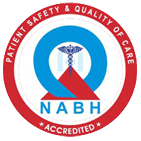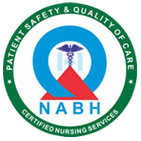FOLLOW THE MISSION HOSPITAL




Appendicitis is an inflammation of the appendix, a small, finger-like tube located where the large and small intestine join. The appendix has no known function.
It is not known why the appendix becomes inflamed in some people. However, when the appendix becomes inflamed, it requires immediate medical attention.
Appendicitis is the most common reason for abdominal surgery in children. About four of every 1,000 children under the age of 14 will undergo surgery called an appendectomy to remove their appendix. Appendicitis rarely occurs in children under the age of two, and mostly occurs in people between the ages of 15 and 30. Appendicitis is more common in males than females.
Symptoms include:
Note : Not everyone will have all of the symptoms.
If you have symptoms of appendicitis, it is important that that you do not take laxatives or enemas to relieve constipation. These medications could cause your appendix to burst. You should also avoid taking pain medications that could mask the symptoms the doctor would need to know about to diagnose the condition.
Appendicitis is diagnosed based upon the patient's symptoms, a physical examination (including a rectal examination), blood tests to check for signs of infection (such as a high white blood cell count), and a urine test to rule out a urinary tract infection. Some doctors may conduct chest X-rays, because pneumonia in the lower right lung can cause pain similar to appendicitis. Additionally, an ultrasound may be performed to determine if the appendix appears to be inflamed.
After you are diagnosed with appendicitis, the doctor will decide whether to hospitalize you for further observation or send you home.
You will be closely observed for 12 to 24 hours to determine whether surgery is necessary. If your symptoms are extremely severe, your appendix may be removed immediately with an appendectomy.
An appendectomy can also be done as a laparoscopic or "minimally invasive" procedure. During laparoscopic surgery, five or six small (5 to 10 millimeter) incisions are made in the abdomen. The laparoscope and surgical instruments are inserted through these incisions. The surgeon is guided by the laparoscope, which transmits a picture of the internal organs on a monitor. The advantages of laparoscopic surgery include smaller incisions, less risk of infection, less pain and scarring, and a more rapid recovery.
It is crucial to remove an infected appendix before it ruptures. If an infected appendix ruptures, the infection may move to the abdomen, causing peritonitis (an inflammation of the lining of the abdomen). The rupture may also cause an abscess (infected area) near the place where the appendix ruptured. If the appendix does rupture, the doctor will leave a drainage tube in the abdomen for a few days after surgery to remove fluid.
After surgery, your doctor will prescribe antibiotics. You may need to take them for 24 hours or more, depending on whether your appendix ruptured and which areas were affected.
Usually for the first day or so after surgery, you will not be given anything to eat or drink. Then your doctor will allow you to have small amounts of water, then clear liquids, and then some solid foods until you are able to digest foods normally.
There is no way to prevent appendicitis. However, appendicitis is less common in people who eat foods high in fiber, such as fresh vegetables and fruits. If you think that you might have appendicitis, call your doctor immediately so that he or she can assess your condition and prescribe the proper treatment.

A Unit Of Durgapur Medical Centre Pvt. Ltd.